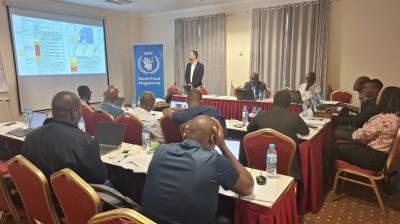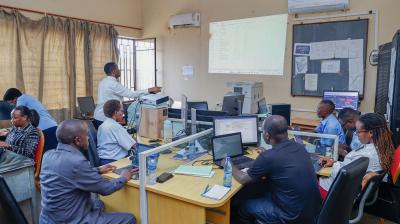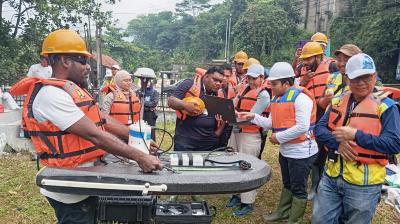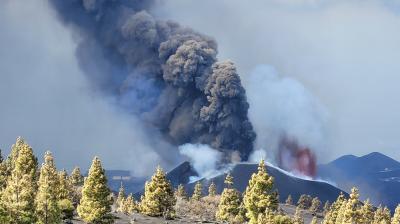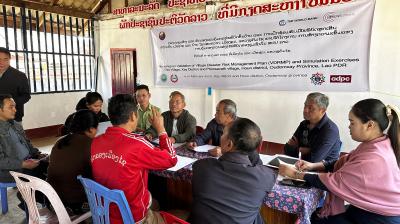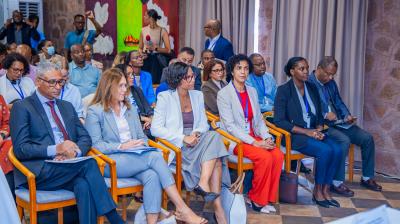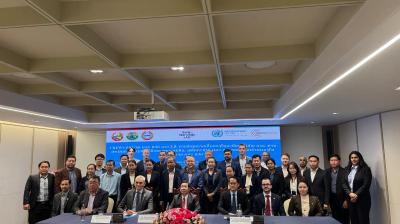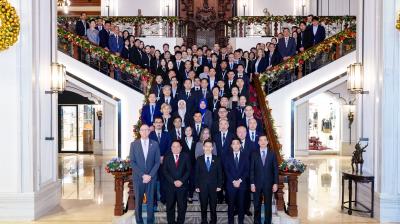WMO reinvigorates relations with space agencies

Space-based observing systems constitute approximately 90 percent of the data used in global numerical weather prediction models. They are the backbone of operations of National Meteorological and Hydrological Services, providing invaluable insights that safeguard lives and property worldwide, 24/7.
The WMO community has longstanding collaboration with space agencies and this has been instrumental in promoting data sharing, setting common standards and building capacity, especially in less developed countries.
Delegates to the 15th Session of Consultative Meetings on High-Level Policy on Satellite Matters agreed to elevate that relationship to the next level.
“Today, as we confront emerging challenges such as climate change, water resources management, and space weather forecasting, our collaborative efforts are more vital than ever,” said WMO Secretary-General Celeste Saulo.
The meeting, the first to take place in more than five years, brought together senior representatives of space agencies and the meteorological community, including the presidents of WMO’s Infrastucture and Services Commissions.
It explored how WMO can support space agencies in meeting Members' data and information needs while facilitating better access and utilization of the vast troves of data from the latest and future generations of satellites.
It also examined the potential of space-based observations to support key WMO strategic priorities including Earth System monitoring and prediction, Early Warnings for All and the Global Greenhouse Gas Watch.

Earth Observations
“By leveraging better Earth observations, we can substantially bolster the effectiveness of these endeavours, ensuring more timely and accurate warnings for vulnerable communities and facilitating informed decision-making in addressing climate change challenges. Today, we embark on a journey of cooperation and innovation, leveraging our collective expertise to overcome challenges and achieve our shared vision of a safer, more resilient world,” said Celeste Saulo.
She stressed the need to:
- Combine the strengths of both an operational approach and an adaptable and innovative “can do” research approach;
- Build public-private partnerships that mesh the public good mission of governmental agencies with the rapid pace and innovation of the private sector;
- Align global infrastructure approaches with Member-focused initiatives.
Specifically, the meeting discussed:
- How to support Members with the least capacity, particularly in support of Early Warnings for All;
- How to bring data and users together in the face of growing data volumes and capabilities;
- Best practices and growing opportunities in working with the commercial satellite sector to turn the Global Greenhouse Gas Watch into reality in the coming years ;
- The rapidly evolving role of Artificial Intelligence on the weather and climate enterprise and its implications for satellite data;
- The development of WMO’s space programme and its role in the WMO Integration Global Observing System Vision (WIGOS) vision for 2040;
- Implementation of the WMO Unified Data Policy, including defining the core and recommended space-based observations across all application areas.
“The timing of this meeting is perfect from a scientific and technological perspective but also from a governance perspective,” said WMO Infrastructure Commission President Michel Jean.
Forthcoming WMO constituent body sessions will seek to strengthen the dynamics of the relationship with space agencies. This will also be reflected in the Coordination Group on Meteorological Satellites plenary in June and the Committee on Earth Observation Satellites plenary in October, said Michel Jean.


